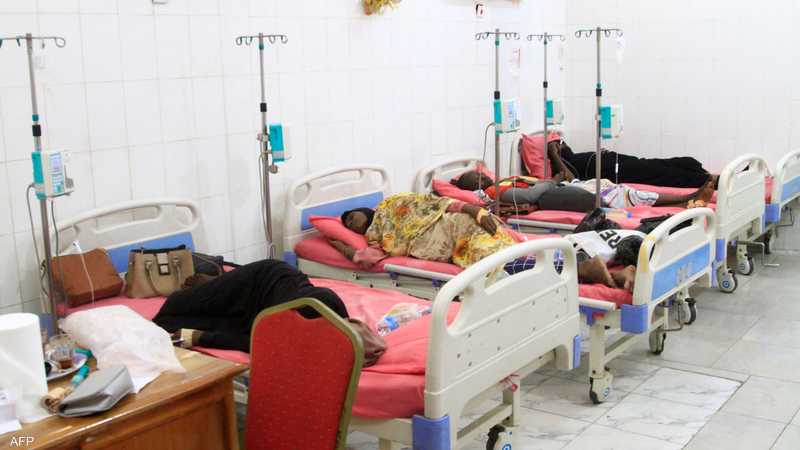Widespread outbreak in Sudan amid fears of chemical contamination exacerbating the health crisis

The Sudanese capital, Khartoum, and most areas of the country are witnessing a widespread outbreak of infectious diseases, including malaria, dengue fever, and cholera, amid fears of a catastrophic deterioration of health conditions due to resource scarcity, a shortage of medicines, and rising prices.
The Sudanese Doctors' Syndicate reported that more than 70% of health facilities are out of service due to the ongoing war since April 2023, while the few remaining hospitals are operating with limited capabilities and are suffering from severe shortages of medicines and medical solutions.
Reports from the Ministry of Health indicated the registration of 1,523 cases of dengue fever and 1,367 cases of cholera during the period from September 6 to 12, including 52 deaths in five states. The emergency rooms in the Khartoum North area recorded about 4,875 epidemic cases within one month.
In an indication of the seriousness of the situation, authorities in Al-Jazeera State announced the suspension of classes in all secondary schools due to the outbreak of diseases. Displaced persons' camps and host communities are suffering from difficult health conditions that increase the risk of disease spread.
Observers link the outbreak of diseases to allegations of the use of chemical weapons by the Sudanese army, as local and international reports have indicated chemical attacks in the capital and central and western regions of the country for months. The United States stated last May that it had evidence confirming the army's use of chemical weapons, and the New York Times quoted senior American officials about the army's use of chemical weapons.
For its part, the Organization for the Prohibition of Chemical Weapons clarified that it is closely monitoring the situation, but it has not received an official request from any country to initiate an investigation, noting that official investigations begin either at the request of the directly affected state or through a surprise inspection if the incident occurs in another state party.